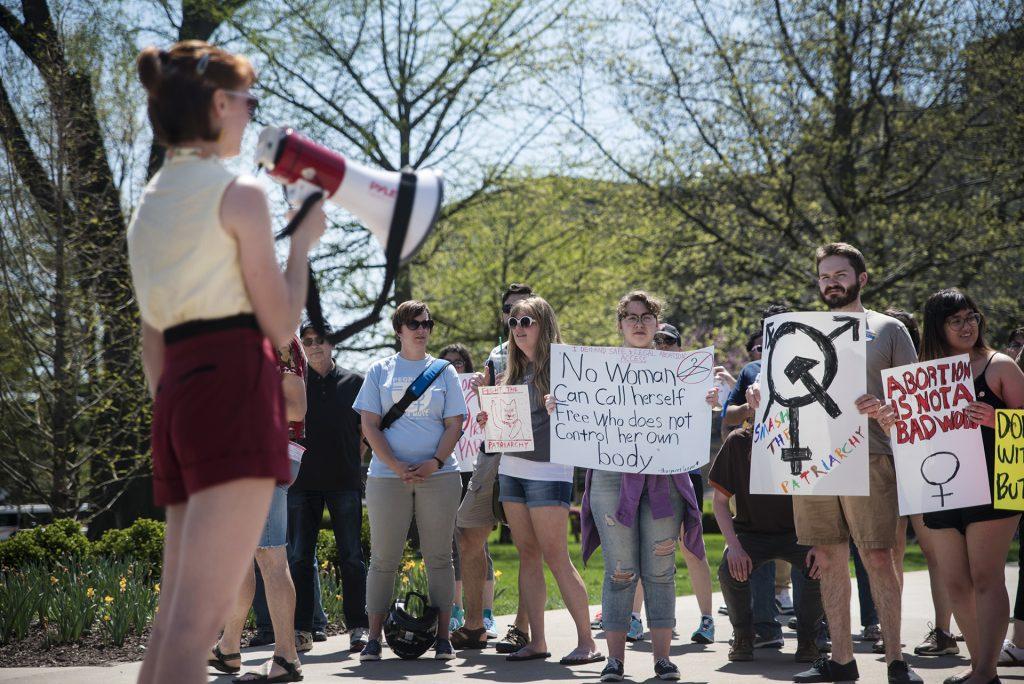Supporters of the fetal-heartbeat law want to overturn Roe v. Wade. But what did a pre-legal abortion America look like for women?
Isabella Rosario
Iowa Republicans have said they hope that legislation banning most abortions after a fetal heartbeat is detected will advance in the courts to the Supreme Court and lead to the justices overturning Roe v. Wade. With this intention in mind, let’s look back on a pre-Roe v. Wade America, how the landmark 1973 decision affected public health, and the implications of illegal abortion worldwide.
According to an analysis from the Guttmacher Institute, in 1930, abortion was documented as the official cause of death for approximately 2,700 women in the U.S. — that’s almost one-fifth (18 percent) of maternal deaths that year. The introduction of antibiotics in the 1940s decreased the number of deaths dramatically, but by 1965, illegal abortion was still attributed to 17 percent of all maternal deaths that year.
From 1970 to 1998, the proportion of abortions obtained early in the first trimester increased from 20 percent to 56 percent. And abortion rates are at their lowest since Roe v. Wade and have been declining for decades, as access to contraception and sex education has improved.
RELATED: Supporters and opponents discuss opinions on new ‘heartbeat bill’ during a protest
In developing countries, 1 in 10 maternal deaths are caused by unsafe abortions, according to Reviews in Obstetrics and Gynecology. Despite restrictive laws, like American women pre-1973, women in these countries still seek dangerous, costly, illegal abortions. In 2016, U.N. human-rights experts said, “Criminalization of abortion and failure to provide adequate access to services for termination of an unwanted pregnancy are forms of discrimination based on sex.” They said repealing anti-abortion laws would save the lives of nearly 50,000 women per year.
Our contentious national conversations on abortion often happen in the abstract, with debates centering on when life begins and a woman’s autonomy. What’s often left out of the discussion is that nearly 1 in 4 women in the U.S. will have an abortion by age 45, according to a study published in the American Journal of Public Health. I almost couldn’t believe this statistic when I read it; abortion is frequently stigmatized as an uncommon procedure relegated to “those women” who made bad decisions. But in fact, it’s a common female experience at home and abroad, legalized or not — in pre-Roe v. Wade America and in developing countries today, illegal ones are far deadlier.
One in 4 women who may be your neighbor, friend, daughter, sister, mother, will have an abortion. Again, it’s hard to believe that statistic — which leads me to believe many women just don’t talk about it. Even women who are the family and friends of staunch pro-lifers.
Iowa’s fetal-heartbeat law probably doesn’t have a case; in 2016, the Supreme Court rejected even hearing a challenge to a similar law. But as policymakers, including Gov. Kim Reynolds, push for the ban, I fear the tangible lives of Iowa women are being ignored for the sake of philosophical meditations on when life begins. Abortion occurs whether it’s legal or not. In making it illegal, we jeopardize the health and lives of Iowa women, including those in our tightly knit communities who feel unsupported in or shamed for their health-care decisions.
We already know statistically proven, safe methods of reducing abortions. A myriad of studies point to comprehensive sex education and affordable contraception as correlating with lower abortion rates. Conversely, outlawing abortion has presented no significant decrease in the number of abortions performed worldwide.
I understand the ethical concerns with abortion. But hyper-focusing on questions of morality distracts from the reality that women seek abortions whether they’re legal or not — and suffer potentially fatal consequences when they aren’t. The heartbeat law doesn’t call for criminal prosecution of women who choose abortion. Nevertheless, they will be punished under it.
Do we really want to go back?










